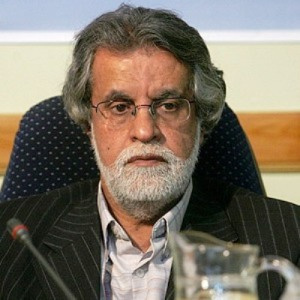A Cabinet for the Resistance

IRD: Finally we are seeing Mikati’s cabinet. Why did it take five months for the new cabinet to be formed?
MAM: I think the fact that this cabinet was formed is more important than the cause of its delay. Five months is a long time for political suspension, particularly in a critical country like Lebanon. Regional circumstances also necessitated the formation of a cabinet. Ordinarily, political crises in Lebanon have both internal and external causes. Internally, we witnessed the typical struggle between religious and ethnic factions, each demanding an extra share of power. The grand face-off between the March 8 and March 14 camps also created hurdles. Key ministries, such as interior, finance, justice, defense, intelligence and telecommunications were as always mouth-watering temptations for the various parties.
One basic point which should not be overlooked is that since Lebanon’s independence in 1943, the country has been divided into two distinct groups: those who affiliate themselves with the West and those who consider themselves as part of the bigger Arab-Islamic community. As a result of this disposition, a cabinet forms when Western and regional powers come to a tacit agreement. In the 1960s and 70s France and Egypt had to make the agreement. In the 1980s and 90s the French were replaced by the US and Syria. In the current situation, Syria is paralyzed by pro-democracy protests and the US is also occupied with its own domestic and international concerns. So the overdue formation of Mikati’s cabinet was predictable. The power loci in Lebanon had paused to see how the situation in Syria unfolds. Bashar Assad has held his firm grasp on power so far, so Syria keeps its special status in Lebanon’s affairs. Saad Hariri’s withdrawal from participation in the cabinet also facilitated its formation.
IRD: Unpredictably, Shi’as agreed to a reduced share in favor of Sunnis. What did they receive in this trade-off?
MAM: Cabinets in Lebanon take either of these two forms: compact or extended. An extended cabinet consists of 24 or 30 ministers, equally divided between Muslims and Christians, each compartment further divided between religious factions, for example Shi’a, Sunni, Druze and Alawite on the Muslim side and Maronite, Catholic and Armenian on the Christian side. This is called the munasifah (‘halving’) formula in Lebanon. The complementary rule is muthalathah (‘triangling’), which means the three major factions, i.e. Christian Maronite, Shi’a and Sunnis should hold an equal number of portfolios. Shi’as agreed to relinquish a seat in favor of the Sunnis.
IRD: So the Shi’as were the only faction stepping back to help form the cabinet.
MAM: Yes, but don’t miss the point. Inside the Shi’a community, Hezbollah and the Amal Movement are the axes of political decision-making. They are allied to Michel Aoun, head of the Maronite Free Patriotic Movement. So many observers believe that the Shi’as’ move was in fact aimed to serve their own interests. In fact, they stepped back for the good of their political allies. At the end of the day, Najib Mikati’s cabinet is dominated by pro-Resistance figures.
IRD: How will the US and Saudi Arabia, which are both key actors in Lebanon’s politics, react to Mikati’s cabinet?
MAM: They are definitely not pleased with it, especially Saudi Arabia, which relies on Sunni and Christian figures such as Saad Hariri, Samir Geagea and Amin Gemayel-- all cut from Mikati’s cabinet. Influencing this cabinet will be a tough job for both Washington and Riyadh. On the other hand, Bashar Assad was prompt in calling Lebanese President Michel Suleyman and congratulating him on the formation of the cabinet. This is a relief for Bashar Assad, while the situation in his own country is quite stormy.
IRD: Renowned Druze politician Talal Arsalan resigned from the cabinet a few hours after it was formed. Could his resignation possibly weaken the government?
MAM: I think this is a minor concern. The portfolios he was demanding for his group were given to his Druze arch-rival Walid Jumblatt, who pulled the rug from under Hariri by leaving the March 14 camp and joining the Resistance. I think he will return to the cabinet after negotiations in the upcoming days. Shi’as may be the brokers of this affair.

